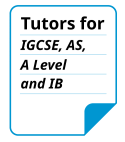ib
The International Baccalaureate (IB), also known as the Diploma Programme (DP), is a two-year pre-university course for students aged 16-19, taught in three languages: English, French and Spanish. It is an international education programme, founded by the International Baccalaureate Organisation in 1968.
This training helps to develop the intellectual, personal, emotional and social skills needed to adapt to a particularly globalised world.
It is made up of a common core and six groups of subjects.
The common core is intended to broaden the educational experience and challenges the application of knowledge and skills. Its components are:
Theory of Knowledge
You reflect on the nature of Knowledge and how we know what we claim to know.
Monograph
An independent research paper culminating in a 4,000-word essay.
Creativity, Action and Service
You complete a project related to these three concepts.
As for the six subject groups, each group comprises different courses:
Language and Literature Studies
Language Acquisition
Individuals and Societies
Science
Mathematics
Arts
You have to choose one course from each of the first five subject groups, plus one Arts subject or a second subject from groups 1 to 5.
Some subjects are taken at Higher Level (240 hours) and others at Standard Level (150 hours). The difference between the levels is in scope, but both are assessed by the same criteria. It is necessary to take a minimum of three subjects and a maximum of four at Higher Level and the rest at Standard Level.
For each of the six subjects, students obtain a mark ranging from 1 to 7, to which are added the marks for the common core, which can range from 0 to 3 points.
At the end of the International Baccalaureate, the grades of all the subjects of the two courses are added together. To obtain the diploma, at least 24 points are required, in addition to passing the core subjects.
